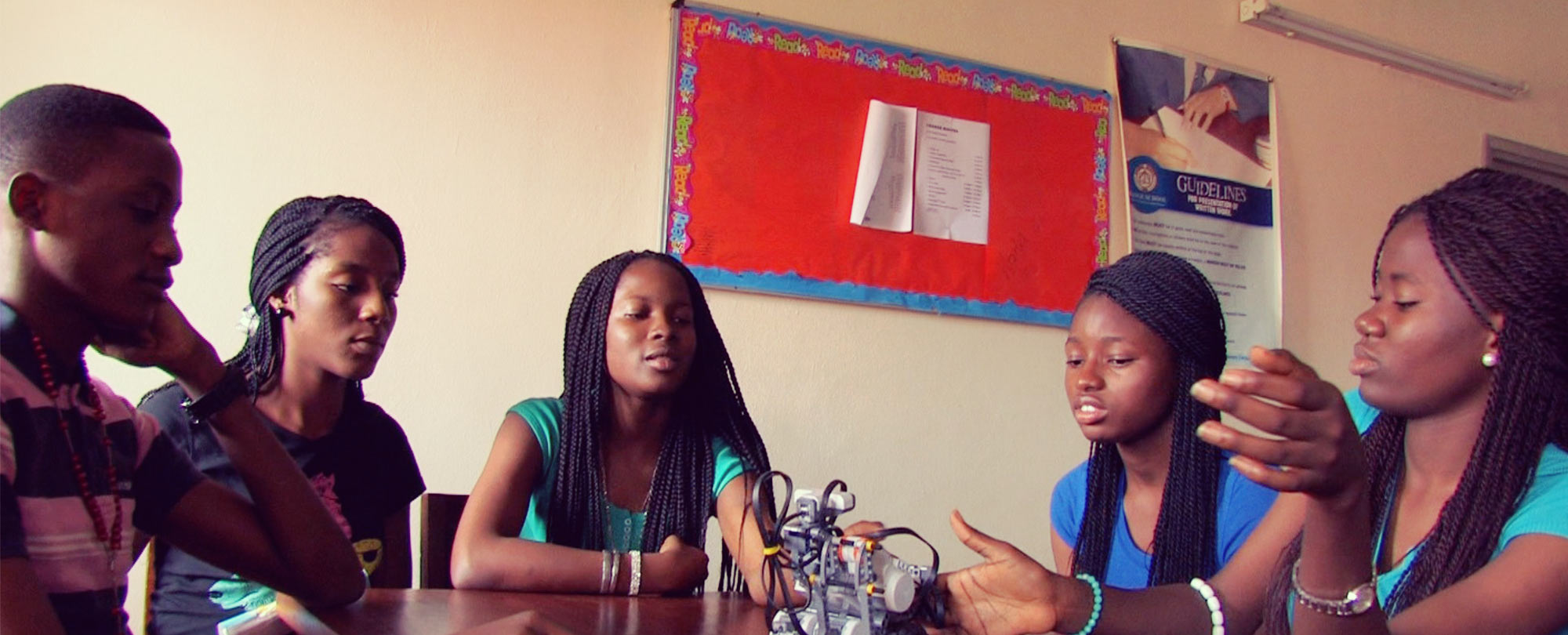In his film Naija Beta, Ghanaian filmmaker Arthur Musah follows a group of Nigerian and Nigerian-American MIT students run a robotic summer camp for some students in Lagos in 2012.
The MIT students start a learning process of their own, finding out more about their own dual identities whilst facing the realities of life in Nigeria. The film was screened at the Pan African Film Festival of Cannes on April 17.
Little film steps out into big world: #NaijaBeta #worldpremiere at #fifp2016 on 4/17/16 in #Cannes https://t.co/5k8opqTNHZ #myfirstTweet
— Naija Beta (@NaijaBetaFilm) April 12, 2016
How did Naija Beta come about?
I was working on my other documentary project, ODITGF, in which I follow the adventures of four African students over four years at the Massachusetts Institute of Technology in the USA, when one of the subjects, Philip, told me he would be teaching robotics to high school students in Lagos for a summer. My ears instantly perked up.
Naija Beta is the longest film I’ve made so far.
He told me it was a five-week programme, founded and run entirely by MIT Nigerian students and it would end with a competition event for the participants. It sounded like an event that suited the cinematic story structure. There was a mission, lots of unknowns and a guaranteed climactic finale. Of course I was depressed for days when I found out that I could not get to Lagos for the start of the programme. Eventually, I made it over for the last 10 days of that first run of the Exposure Robotics programme and that footage became the backbone of the film.
Have you directed a film before?
I have directed fiction shorts before, in the film production MFA programme at the University of Southern California. Naija Beta is the longest film I’ve made so far. It’s 50 minutes long.
What are the themes the film touches upon?
The film is about the value of homecoming and the power of youth. The robotics engineering programme itself was quite fascinating as a model for learning in a place where it was new. However, I always felt as we edited the footage that I was compelled to film the programme because of something other than the novelty of African children working with computers and robots.
In the end it dawned on me that I was really awed by the audacity of a scrappy group of young Nigerian-Americans and Nigerians. They believed that they could challenge how teaching and learning have been done in Nigeria. I believe youth comes with a lot of freedom that can enable such audacity. I think it’s important to harness that opportunity.
‘Sometimes to complete yourself, you have to come back home’. Do you think this is true for most of the African diaspora? Does this ring true for you personally?
Home is a funny thing. For me, in one sense home is Boston, where I live with my partner, have close friends and loved ones – the home of my daily life, my work, and my optimised routines. I feel very much at ease here, having lived in the US for 16 years now. And yet home is also Ghana, in Accra where my parents live and in Han (Upper West region of Ghana) where my paternal roots are, where my own irrelevant but cherished personal and familial history lies and where I hope the work I’m doing even when I’m away will someday have an impact.
I think home is a physical or psychological place.
Home is also my country of birth, Ukraine, where I last traveled in 2009 after being away for 19 years. I was broken-hearted before I set out on that trip. Being with long unseen family, being touched by them and being able to touch them, to eat and speak and swap stories and laugh with them healed me. I think home is a physical or psychological place that is essential to one’s life’s meaning, which is why it can be multiple places. I suspect this is true for other Africans in the diaspora and for Africans on the continent – we all have to reconnect with those places that give our lives meaning.
How did creating this film change your perspective on Lagos and tech?
I’d say making the film gave me a perspective of Lagos, as I didn’t have one before. I got to see the Lagos buzz. Everyone is motivated in Lagos, it is an energy you feel. I got to see Nigerians at work. I did not get a broad picture of tech in Lagos as I focused on Exposure Robotics on my two production trips there, but Obinna Ukwuani, the Exposure Robotics programme’s originator, is currently in Nigeria creating his next tech education venture, Makers Academy. My biggest takeaway on Lagos is the young people are motivated. Its youth are dynamic and full of ideas – I think the film gives a glimpse of that.
Who’s the audience for this film?
A Ghanaian friend said, after watching the film at a test screening in Boston: ‘This film is speaking to the wayward African – like myself. I’ve been away from home too long.’ I’ll let that stand. Wayward or not, African or not, if you’re in Dallas from July 1-3, come see Naija Beta at The African Film Festival, or check out our Facebook page for future screenings near you.
Find out more about Naija Beta here
